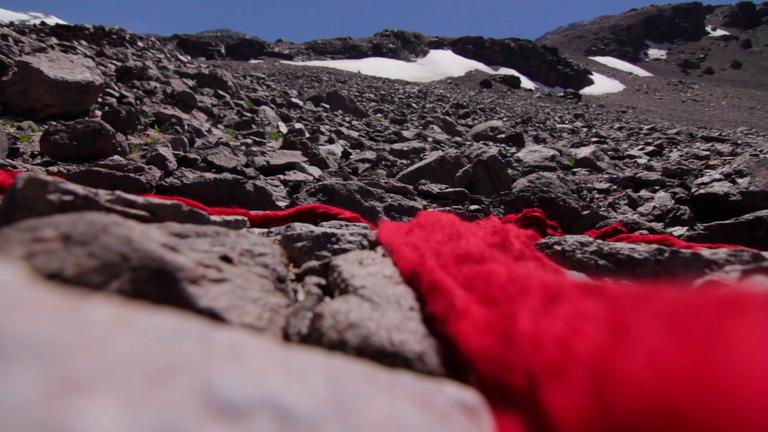
VIDEO ROOM: CECILIA VICUÑA CECILIA VICUÑA
MASP – Museu de Arte de São Paulo Assis Chateaubriand presents, from December 15 through February 11, 2024, on the 2nd basement floor of the museum, Video Room: Cecilia Vicuña, exhibiting Quipu Mapocho (2017). Curated by Kássia Borges, assistant curator of Indigenous art at MASP, the work records a series of performances by the artist along the Mapocho River in Chile, which bring perspectives on life, death, culture, memory and the history of that territory.
Cecília Vicuña Ramírez (Santiago, Chile, 1948) is a Chilean poet, filmmaker, activist and visual artist based in New York. Her production focuses on eco-feminism and deals with the politics of ecological destruction, cultural homogenization and economic disparity. Through written language, installations and videos, her art touches on the various dimensions surrounding the earth. Combining poetry, video, painting and ritual, the artist recovers Indigenous knowledge about the power of women and the wisdom of forest beings.
The video Quipu Mapocho shows some of her work along the Mapocho River, in Chile. 110 km long, the river originates in the town of Lo Barnechea, passes through the towns of Provincia, Santiago and Maipú, and meets the Maipo River which flows into the Pacific Ocean near the coastal town of Llolleo. Delving into the multiple layers of meaning that permeate this river, the artist describes it as a river of death, since not only is it currently contaminated with sewage and chemical waste, but it was also a place where the Chilean dictatorship dumped the bodies of those who were tortured and killed.
Vicuña creates weavings and knots with wool along the river, in an effort to heal this place from ecological and political violence and thus recover the sacred place conferred by Indigenous history and culture. “The sounds and images bring an echo of ancestry without trying to be beautiful, but aesthetic, in the literal sense of the word, awakening all the bodily senses whilst the movie is being watched,” reflects Kássia Borges.
Video Room: Cecilia Vicuña concludes the 2023 Video Room series, centered on the theme of Indigenous Histories at MASP and which, over the course of the year, has included works by the Bepunu Mebengokré Collective, Sky Hopinka, Brook Andrew, Glicéria Tupinambá and Alexandre Mortagua.